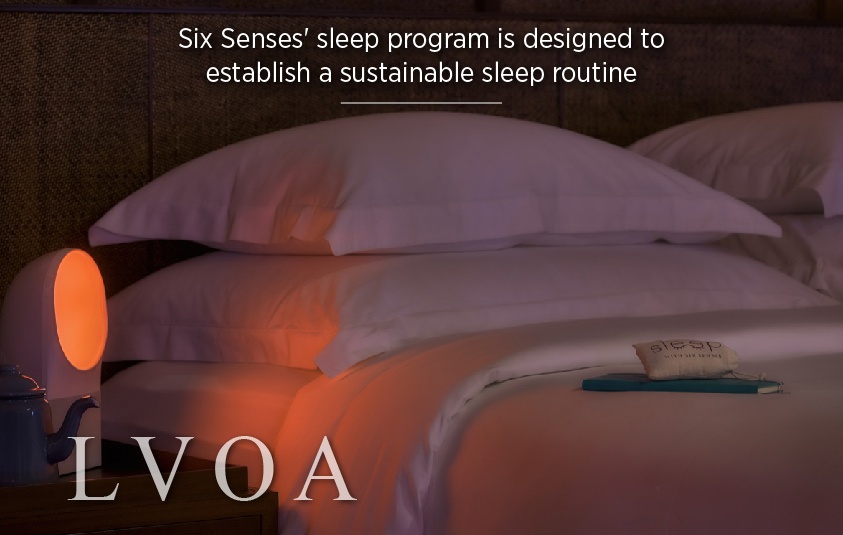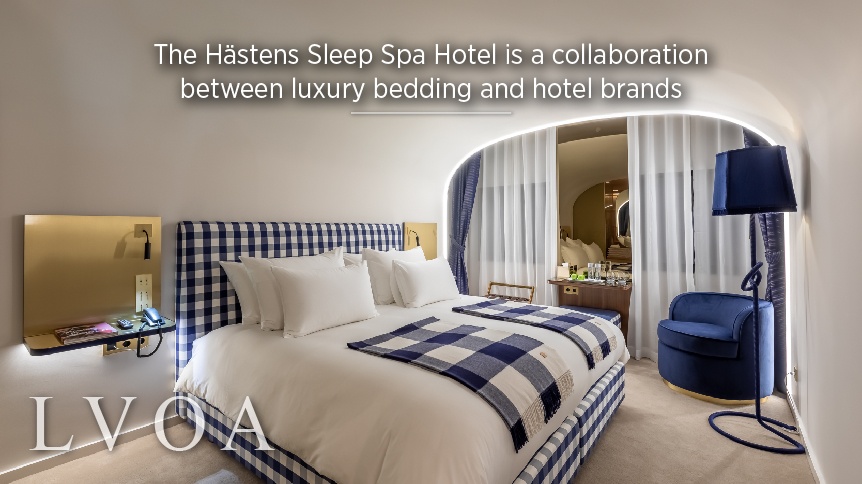As providers of overnight accommodation, sleep has always been a priority for hotels. However, with rising rates of insomnia and more research available on the importance of sleep (and quality of sleep), hotels are upping their game when it comes to getting a good night’s rest.
Quality sleep is also emerging as a key pillar of wellness in the hospitality industry. Rather than considered as a separate service to wellness treatments, sleep is being incorporated as part of a holistic wellness experience, especially at luxury hotels.
Pandemic-induced insomnia
Sleep was already on the wellness agenda pre-pandemic, with hotel brands partnering with meditation and sleep apps, such as Calm and Headspace, which aim to help users wind down, ready to rest. However, Covid-19 has truly accelerated that trend.
According to Science Daily, the number of online searches for “insomnia” significantly increased at the height of the pandemic. Insomnia is a common symptom of suffering mental health and mental wellbeing, but can also cause mental health issues such as anxiety and depression (creating a vicious cycle), as well as physical health problems such as high blood pressure and heart disease. Now, more than ever, people are looking for sleep solutions and ideas for sleep improvement.
What constitutes a good night’s sleep?
The anatomy of quality sleep differs from person to person, but there are certain contributing factors that affect everyone’s sleep. These include the comfort of the bed, the quietness of the room, the comfort and/or quality of pillows and bedding, plus room temperature. To cater to everyone’s quirks and preferences, hotels can supply pillow menus and individual temperature controls in guest rooms.
Beyond the basics, amenities such as white noise machines, earplugs, robes and slippers, black-out curtains and pillow spray can also aid in improving the quality of sleep, but are more to do with personal preference.
It’s well documented that the wellness industry is growing exponentially, so with sleep a part of the holistic wellbeing experience, sleep is a profitable business to be in. Consulting firm Frost & Sullivan estimated the so-called ‘Sleep Economy’ to be worth $432 billion in 2019, predicting a compound annual growth rate of 6.3% through to 2024.
Hospitality is taking notice. Here are four high-end hotels with specialised sleep programs that aim to tackle the global sleep epidemic in very different ways:
Amangiri, Utah, United States – An expert-led masterclass in sleep
Utah’s Amangiri runs a four-day program developed by sleep specialist Dr Micheal Breus, which educates guests on the “art of sleep.” The so-called masterclass of sleep begins with a pre-arrival assessment and one-on-one interview with Dr Breus to determine the individual’s chronotype – the natural inclination of your body to sleep at a certain time.
This consultation is followed by activities such as daily practitioner-led wake-up routines, morning yoga classes, therapeutic cold-water plunges, as well as lectures on topics such as sleep genetics, managing caffeine and alcohol intake, and creating an ideal sleep environment. Quality of sleep is monitored by an Oura Ring, which records heart rate, temperature, and other data to provide more insights into sleep behaviour.
The Hästens Sleep Spa Hotel, Coimbra, Portugal – A Collaboration Between Luxury Hospitality & Bedding Brands
Taking the prioritisation of guests’ sleep to a new level, The Hästens Sleep Spa Hotel is a 15-room collaboration between hotelier O Valor do Tempo and the Hästens, a luxury bedding brand. The first of its kind and boasting a superlative sleep experience for guests, in-room amenities include a Hästens bed and bedding (pillow menu, duvet and bed linen), which contain no synthetic materials.
Hästens’mattresses are filled with hypoallergenic horsehair, which removes excess heat and humidity produced by the body during deep sleep.The wool and cotton mix of the bedding supplies comfort, pillows and duvets are stuffed with natural goose feathers, while the linen eliminates static build-up from the body and helps to create positive energy during sleep. Hästens’ handmade wooden bed frame and the patented spring system lend themselves to strength, stability and support.
Rosewood Hong Kong – A night with the “Rolls Royce of beds”
Similarly, Rosewood Hong Kong has partnered with British luxury bedding company Vispring on its package A Good Night’s Sleep with Vispring. The sleep-focused stay in the Manor Suite includes a night in a Vispring bed with a Regal Superb mattress, dubbed the “Rolls Royce of beds.”
Other amenities provided for a peaceful slumber include a Silent Mode meditation and relaxation device, lavender and chamomile scented Votary pillow spray, a Vitruvi sleep diffuser, and Sleep Well tea. Guests also enjoy complimentary access to Asaya’s wellness classes, which can aid relaxation before sleep.
Sleep with Six Senses, global – Establishing best practice rest routines
Six Senses’ sleep programs are available at 12 Six Senses properties around the world, including Southeast Asia destinations Six Senses Krabey Island (Cambodia), Six Senses Ninh Van Bay (Vietnam), and Six Senses Yao Noi (Thailand).
Designed for those who struggle to fall asleep or sleep through the night, the objective of the program isn’t just to provide a good night’s rest during guests’ stay, but to improve sleep patterns and establish a sustainable sleep routine that will ensure good rest practices after departure. This is achieved through a complimentary two-night sleep tracker, followed by analysis of the results.

Is sleep the new luxury amenity?
We often take sleep for granted. When we’re getting enough sleep and good quality sleep, we function as normal. Yet, when we struggle from lack of sleep or poor quality sleep, everything is affected, from our mental to physical health, to our ability to conduct simple everyday tasks. Perhaps we have underestimated the power of sleep for too long.
The pandemic and modern life in general – particularly our increase in technology use and screen time – have greatly affected our sleep in recent years, and sleep solutions are desperately needed. It’s not surprising that sleep is no longer being treated as something a hotel physically provides in terms of a bed and nice bedding, but as an individualised experience for guests that aims to improve holistic wellbeing.
As long as the modern pace of life, digital touchpoints, and the stress-inducing pandemic continue, the relevance of and demand for luxury sleep services will prevail.







